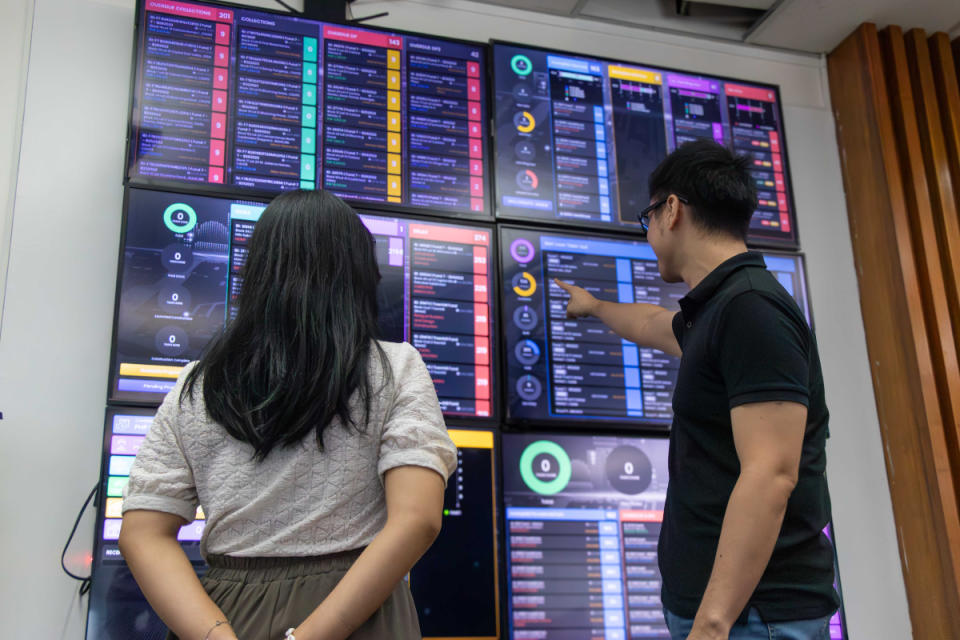Lhoopa raises $80M to spur more affordable housing in the Philippines
A lack of affordable housing is a growing problem worldwide, even in emerging markets with significant demand. That's in part because traditional developers and real estate companies focus on serving people looking for luxury houses, and want to avoid the immense operating expenses associated with affordable housing, which eat into gross margins over time.
Enter Lhoopa.
The Singaporean-headquartered startup uses a mix of technology and decentralized operations, partnering with local professionals, including brokers and building contractors, to solve the problem specifically for people looking to buy affordable homes. The six-year-old startup has kicked off its service in the Philippines, a market with unfilled demand of around around 6.5 million units for low-income earners.
Marc-Olivier Caillot (co-founder and CEO) and Sabrina Tan (co-founder and president) founded Lhoopa in 2018, shortly after moving to the Philippines from the U.S. and experiencing firsthand the lack of platforms for searching for affordable housing.
"Most people can afford an affordable home, but no one wants to build it for them because traditional developers believe they don't make enough money out of it," Caillot told TechCrunch in an exclusive interview.
An average affordable house in the Philippines ranges between $10,000-$35,000 based on social demographics of the social class Lhoopa targets, which includes minimum-wage earners such as blue-collar, community and factory workers. In contrast, houses usually sold in the country can range from $100,000 all the way to luxury homes of $20 million or so.
Lhoopa has developed a technology platform that uses machine learning and AI to analyze market trends based on the data it gets from the listings created by local agents and other channels. Once it identifies properties, the startup sends them to the brokers and contractors in its network to ascertain which can be bought, renovated or built up to make them available to potential buyers. The startup also digitizes bureaucratic process flows using its technology to make documentation available to multiple stakeholders.

Caillot told TechCrunch that the startup monitors around 9,000 different areas across the Philippines and can identify undervalued properties anywhere in the country.
Unlike a housing marketplace, Lhoopa does not connect directly with the customer. Instead, it allows local agents to sell properties through their side and take care of services such as loan applications and purchase documentation.
"What makes us very unique is that we totally decentralized real estate, so we do not have anyone on the ground [from our end], and our brokers and contractors are the partners on the ground to do the work for us," the co-founder said.
Lhoopa has developed dedicated apps for its broker and contractor partners. The app for brokers lets them find buyers from the available listings in real time, while the one for contractors allows them to upload pictures and videos of their work to coordinate with the head office remotely as the progress in their construction. The data from these apps is uploaded to Lhoopa's system, which enables the startup to pay commissions to brokers and send payments to contractors based on their work.
Lhoopa plans to expand its target customer base and make housing available to people who do not have full-time employment, such as gig workers on app-based platforms like Grab.
The freshly infused round includes $20 million in equity, co-led by the World Bank's International Finance Corporation (IFC) and Wavemaker Partners, with participation from Pavilion Capital, 10X Group, Concentric Equity Partners, UAE-based Mirath Investments and U.S.-based NataRock Partners Fund. Existing investors Patamar Capital and Tekton Ventures also participated in this round. The funding also includes $60 million in debt from development financial institutions such as the Asian Development Bank and the United States International Development Finance Corporation, as well as the U.K.-based debt provider Lendable.
Caillot told TechCrunch that the debt was required to expand their real estate acquisition and construction operations. The startup decided not to liquidate much of its holding for a significant investment against equity as it was already profitable, he said.
Lhoopa aims to utilize the fresh funding to grow its presence in the Philippines and even go beyond the country and expand to other Southeast Asian countries, with plans to enter at least one country in the next 18 months. The firm has 95 employees, and around 5,000 agents and 100 contractor groups.
To date, Lhoopa has sold over 2,500 affordable houses in more than 58 cities in the Philippines, and Caillot told TechCrunch that the startup will provide over 15,000 affordable homes in the Philippines alone over the next three years.
"With this new partnership, we hope to help close the gap in affordable housing and promote inclusive development by supporting a company that provides digital solutions to first-time homeowners and improved access to financing for low- to mid-income consumers," said Jean-Marc Arbogast, country manager for the Philippines at IFC, in a prepared statement.
Before the latest round, Lhoopa had raised less than $4 million in equity and $2 million in debt.

